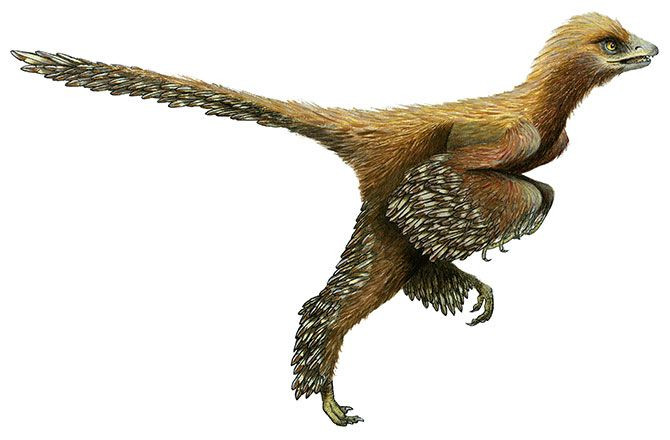
The world's first bird has been discovered, scientists unearthed a fossil of a 160-million-year-old bird in China. The world's first bird is being called Aurornis xui, and it is the earliest bird species ever discovered.
The name Aurornis xui is made up of the words Aurora (Latin for "daybreak") Ornis (Greek for "bird"). The last part xui is a tribute to Xu Xing, a well-known Chinese paleontologist who specializes in feathered dinosaurs and the non-avian dinosaur-to-bird transition.
The discovery of Aurornis xui assists scientists in understand just how birds spilt from dinosaurs and developed their evolutionary power of flight.
The world's first bird, Aurornis xui is described as a small, feathered beast by Nature.
"Our analyses indicate it as the most primitive bird known," said co-author Andrea Cau, a vertebrate paleontologist at the Museo Geologico Giovanni Capellini in Italy. "It was a small feathered dinosaur that lived in what is now China about 160 million years ago. It looked like a ground bird, but with a long tail, clawed hands and toothed jaws."
With the discovery of Aurornis xui, Archaeopteryx, a species discovered in the 19th century believed to be the oldest, no longer claims its top spot, however the recent fossil discover does clarify Archaeopteryx as a bird and not a feathered dinosaur as early believed. Scientists now believe that Archaeopteryx lived 10 to 15 million years after Aurornis xui.
The discovery of Aurornis xui also shows the beginnings of changes in bone structure that allowed later birds, like Archaeopteryx, to fly.
Scientists now possess a clear evolution leading from non-avian dinosaurs to birds, starting with the clade of dinosaurs called Maniraptora.
"According to our scenario, powered flight evolved along the avian lineage after its separation from other maniraptorans," Cau explained. "Powered flight probably evolved after early birds acquired more arboreal adaptations."
© 2025 Latin Times. All rights reserved. Do not reproduce without permission.




